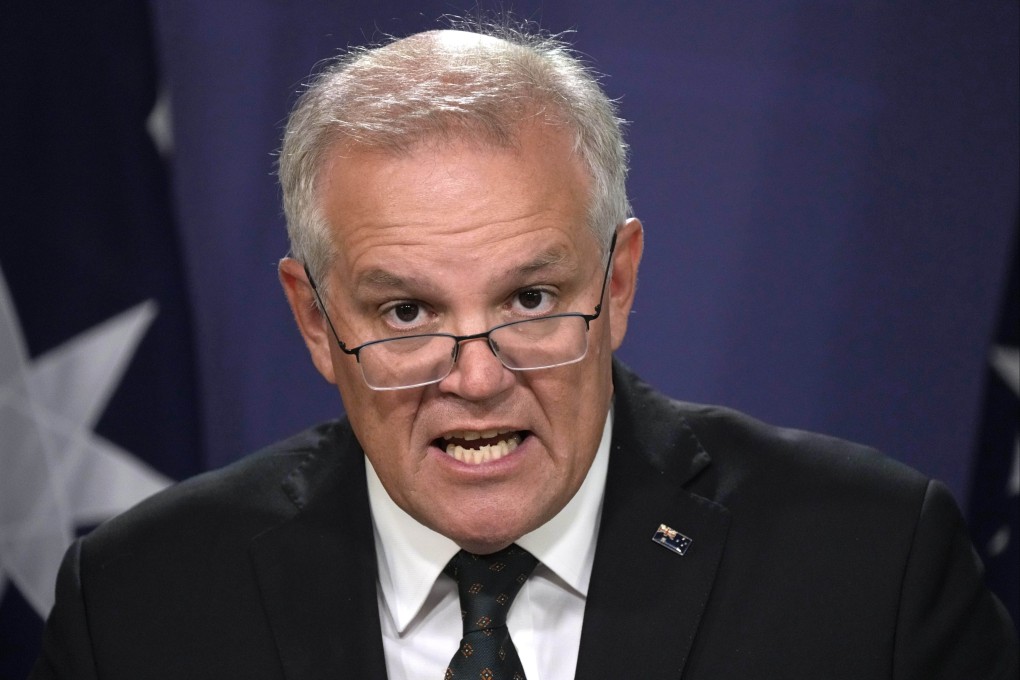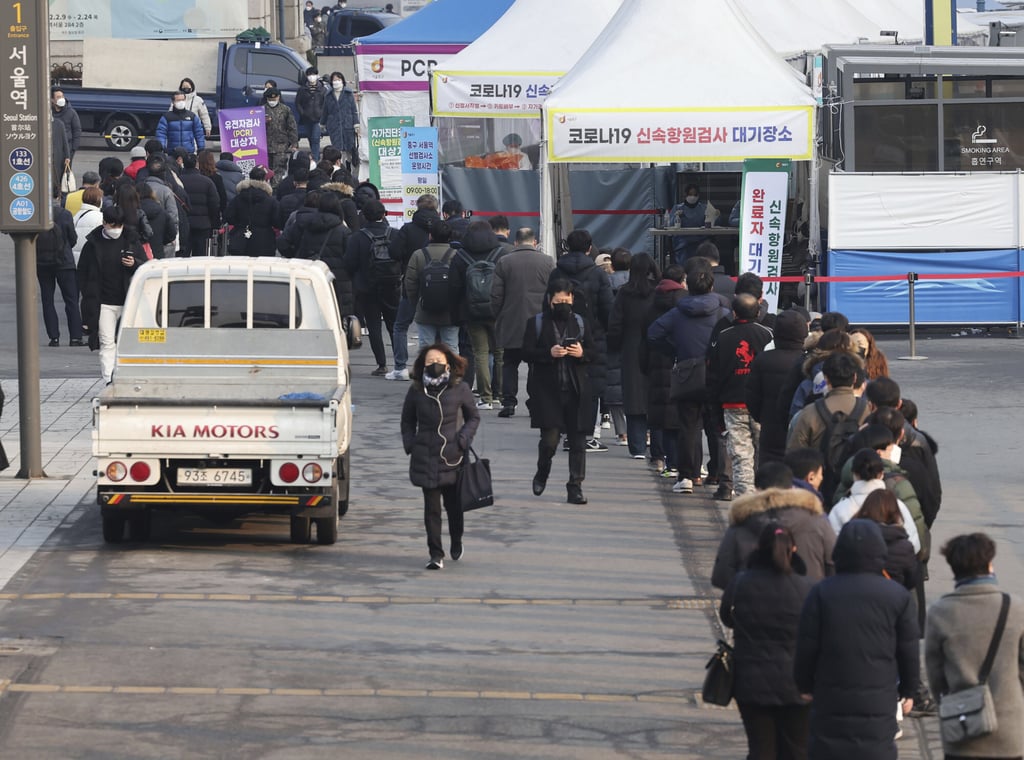Advertisement
Coronavirus: South Korea logs record 219,241 infections; Australian PM Morrison tests positive for Covid-19
- South Korea’s daily coronavirus count surpasses 200,000 for the first time as highly transmissible Omicron variant continues to spread
- Elsewhere, Australia’s Scott Morrison is suffering from ‘flu-like’ symptoms, New Zealand police move to end anti-vaccine mandate protests
Reading Time:6 minutes
Why you can trust SCMP
5

South Korea posted a record of 219,241 coronavirus cases for Tuesday, a sharp spike after the daily tallies hovered around 170,000, the Korea Disease Control and Prevention Agency said on Wednesday.
This is the first time the country’s case count has topped 200,000, according to the Korea Disease Control and Prevention Agency (KDCA).
There were 96 deaths, bringing the toll to 8,266. The fatality rate has fallen sharply, from 0.88 per cent before the omicron-led surge to 0.24 per cent Wednesday. However contacts are expected to increase as in-person schooling starts this week, with presidential elections next week.
Advertisement
The surge in cases comes as South Korea temporarily lifts a requirement for vaccine passes or negative COVID-19 tests at a number of businesses to ease the strain on testing centres, authorities said on Monday, as the country faces a wave of Omicron infections.

The move will allow public testing and health facilities to devote more resources to battling the wave of new cases, Interior Minister Jeon Hae-cheol told a COVID-19 response meeting.
Australian PM tests positive for Covid
Prime Minister Scott Morrison has tested positive for Covid-19 but says he will carry on working from isolation at home as Australia’s east coast battles huge floods.
Advertisement
Select Voice
Select Speed
1.00x